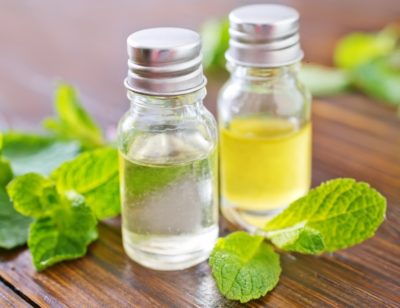 The pleasant taste and sweet aroma of peppermint (Mentha piperita) is well-known by many, especially as a food flavoring.
The pleasant taste and sweet aroma of peppermint (Mentha piperita) is well-known by many, especially as a food flavoring.
However, this hardy perennial plant has perhaps far more therapeutic value than you might imagine. With more than a dozen documented and researched healing properties, peppermint leaves have even been discovered in Egyptian tombs dating back to 1,000 B.C.
A growing volume of scientific research clearly validates what the ancient Egyptians knew: Peppermint is a highly useful herb with a wide range of therapeutic applications including topical, internal and aromatherapeutic.
Peppermint is actually a hybrid cross between water mint (Mentha aquatica) and spearmint (Mentha spicata). Much of the research done on peppermint has focused on its positive impact on gastrointestinal disorders, but its benefits extend well beyond that. Following are seven:
1. Irritable bowel syndrome: In the late 1990s it was discovered that enteric-coated peppermint oil capsules reduced the severity of discomfort and pain associated with irritable bowel syndrome (IBS), predominately in children. In one study, 75 percent of children who took the capsules had relief within 2 weeks.
The Hidden Secrets Of Making Herbal Medicines…Right At Your Fingertips!
A 2005 trial in adults found that peppermint oil capsules may be the best choice for those with non-serious constipation or diarrhea and to lessen general symptoms and improve quality of life. Yet another study published in 2007 found that 75 percent of patients who took peppermint oil capsules had at least a 50 percent reduction in “their total irritable bowel syndrome score.” A 2013 study also found that peppermint oil was highly effective in reducing abdominal pain and diarrhea common with irritable bowel syndrome.
2. Infant colic. In 2013 a study found that peppermint was as effective as a commonly used chemical, simethicone, in treatment of infant colic. This is good news for parents who wish to use something natural to reduce their children’s discomfort.
3. Hay fever. If you are like millions of others who suffer from hay fever, you will be happy to know that a 2001 study found peppermint to inhibit histamine release, making it a clinically effective way to reduce the annoying symptoms of allergic rhinitis.
4. Prostate cancer. Peppermint contains menthol, a compound that research shows inhibits prostate cancer growth.
5. Radiation damage. Research indicates that peppermint can protect against radiation-induced DNA damage and cellular death.
6. Improve memory. According to a study done in 2006, a simple whiff of peppermint can improve alertness and enhance memory. Keeping a peppermint plant on your desk or even just a vial of peppermint oil handy can help perk you up when you are feeling sluggish.
Drinking peppermint tea
Peppermint tea is widely available and is useful to help ease the occasional bout of indigestion or IBS and to reduce discomfort associated with early gallbladder disease. To make tea, steep two teaspoons of dried organic peppermint in one cup of hot water and allow it to sit for 10 minutes uncovered. When the tea is complete, you will see a layer of oil on the top. Keep in mind that if you do not cover the tea while it is steeping, the oil and other medicinal benefits will evaporate into the air. To calm an upset stomach, drink a cup of tea for a few minutes before you eat.
New “Survival Herb Bank” Gives You Access to God’s Amazing Medicine Chest
If you do not wish to drink peppermint tea but want all of its benefits, take one to three drops of essential oil three times a day. You can purchase high-quality oil in capsule or in liquid form in a bottle. If you use the drops, place them directly under the tongue for faster results.
Storing peppermint leaves
Store dried leaves in a container that is airtight and has a lid. Peppermint will keep longer if the container is dark and stored in a cool, dry location. Store peppermint oil the same way — keep it out of directly sunlight or it will oxidize and become ineffective.
Growing your own
Peppermint, like most other mints, is incredibly easy to grow. In fact, peppermint is a fast-growing spreading plant that will take over your yard if you let it. This aromatic herb will grow almost anywhere away from the hot sun. Ideal conditions are slightly wet soil and partial shade. If you do not wish for mint to take over your garden, plant it in containers in the ground. Harvest and dry young leaves for a tasty tea.
Some cautions
It is always best to speak to a healthcare professional before using any herb. Exercise care when using peppermint if you are experiencing heartburn as it may worsen the condition. While peppermint tea is safe for pregnant women and children, peppermint oil is not.
Do you know of other medicinal uses for mint? Leave your reply in the section below:
 Off The Grid News Better Ideas For Off The Grid Living
Off The Grid News Better Ideas For Off The Grid Living




